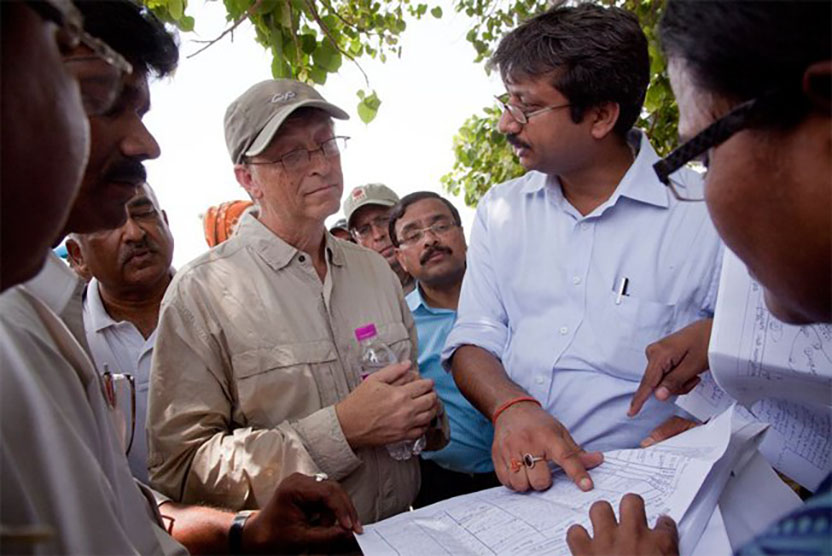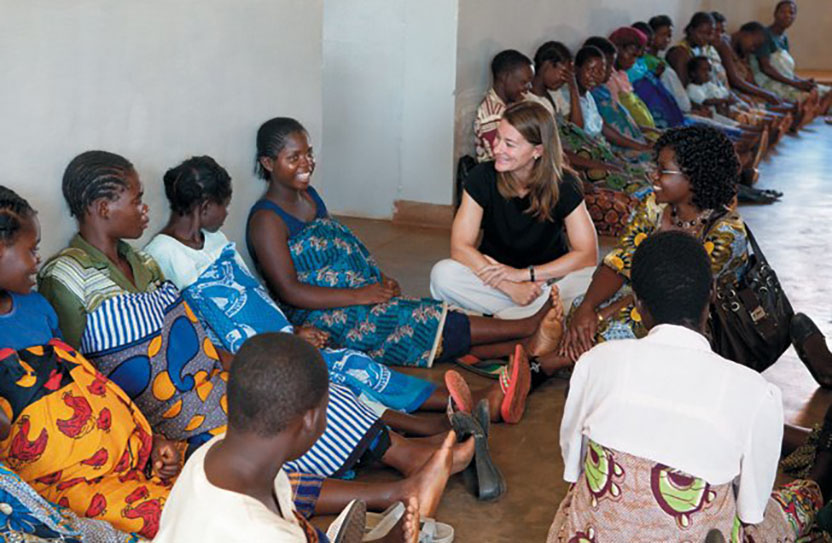
Bill Gates
Bill & Melinda Gates Foundation
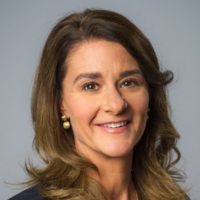
Melinda Gates
Bill & Melinda Gates Foundation
Grand things come to mind when musing about the great 20th century philanthropists. Andrew Carnegie is famous for his libraries, educational institutions, and music hall. The Rockefellers are celebrated for revitalizing New York City, founding a University, building a Center, and donating land for the United Nations headquarters. Andrew Mellon is renowned for establishing the National Gallery of Art.
In the 21st century and beyond, Bill and Melinda Gates will be legendary for transforming the quality of life for millions of Earth’s neediest citizens. The 2013 Lasker~Bloomberg Public Service Award honors these two individuals, who have catalyzed immense interest in and improvements to public health around the world. Through inspired leadership and generous philanthropy, the Gateses have spurred initiatives and research that tackle some of the planet’s toughest health problems. Their work has popularized and intensified concern about previously neglected areas. Guided by the belief that all people deserve a chance to live a healthy, productive life, these visionaries have put global health on the map.
Award presentation by Alfred Sommer
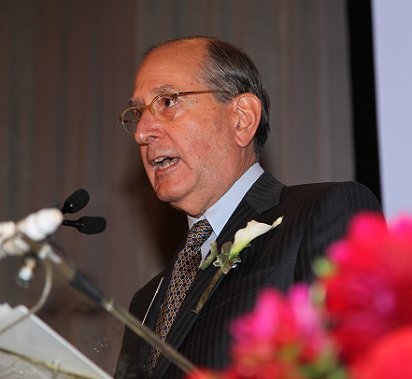 This year’s Lasker~Bloomberg Public Service Award celebrates innovation, advocacy, perseverance, and dedication to improving the health of the world’s most destitute and disease ravaged populations — particularly its women and children.
This year’s Lasker~Bloomberg Public Service Award celebrates innovation, advocacy, perseverance, and dedication to improving the health of the world’s most destitute and disease ravaged populations — particularly its women and children.
We are recognizing Bill and Melinda Gates —
Not because they are wealthy, or have funded a mega-philanthropy, though wealthy they are, and the Bill and Melinda Gates Foundation has net assets in excess of $36 billion.
Not because they live in “the big house on the hill” — though they do live in a big house on a hill.
Not because of their lineage, though their parents are supportive and loving, and Bill Sr. is the living embodiment of the term ‘mensch’ — those of you who are not from New York can find the definition of ‘mensch’ in today’s program.
Bill and Melinda are, of course, the ultimate ‘power couple’: partners in life, in work, and in dramatically improving the lives of impoverished populations around the globe, not just by ‘giving’, but by giving in ways that are extraordinarily rigorous, thoughtful, innovative, and evidence-based.
Acceptance remarks
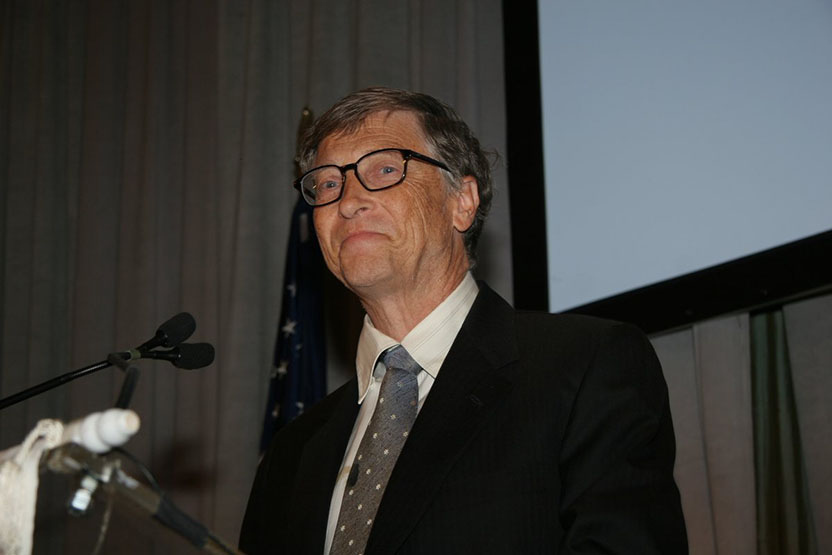
Acceptance remarks, 2013 Lasker Awards Ceremony
Thank you. It is a great honor to receive this award for public service.
I know we have a lot of eminent scientists here, people who have remarkable credentials. I want you to know that, between the two of us, Melinda and I have two degrees… both of them hers.
Melinda and I grew up in families that taught us the importance of giving back to society. These values were the foundation for own our thinking about philanthropy. When Melinda and I got married, we knew we would eventually give the bulk of our resources back to society. But we intended to wait until I was in my 60s.
Then we began to learn more about poverty and disease around the world. We learned that children were dying from diseases that had been cured in this country long ago. We traveled to Africa and saw farmers who were working hard, but could not get a good harvest.
Most of all, we saw that many life-saving discoveries were not shared very widely in the world. Those who had the most to gain from new advances were often the last to get them. It didn’t fit our belief that science is for everyone — that the whole world should benefit from innovation.
And so we started our foundation, with the goal of reducing inequity by ensuring that innovation reaches the poor as well as the rich. As the world enters a new age of scientific opportunity, driven by new ways to collaborate, genomics, and other advances, the prospects for solving the oldest human problems have never been greater-so long as science is aimed at the problems of the poor.
This new age is only possible because the American people have been investing in basic scientific research for decades. And it won’t come to pass unless we continue that support. It’s one of the best investments we can make for saving and improving lives. As Mary Lasker said, “If you think research is expensive, try disease.”
So we are grateful for this award, and for the efforts of scientists everywhere who have dedicated their lives to fighting disease, hunger, and poverty. It is your work that makes us deeply optimistic about the future.
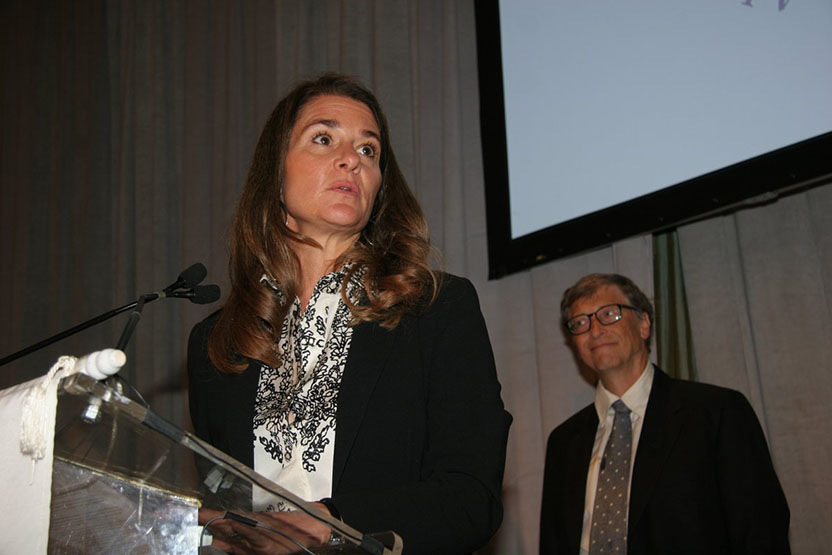
Acceptance remarks, 2013 Lasker Awards Ceremony
As Bill said, we were motivated by the idea of inequity — the fact that billions of poor people were suffering and millions were dying simply because they were poor. In the years since then, we’ve met many people in developing countries struggling to make a better life, and we’ve spent time with the innovators working alongside them. We’ve seen the impact that innovation has on the everyday lives of poor people.
Sometimes, a new technology can change the calculus of a poor person’s life, turning scarcity into surplus. In Tanzania, I met a farmer, Joyce, who takes care of four children, one cow, two goats, some chickens, banana trees, and a couple acres of land. Last year, Joyce planted a new variety of maize that’s able to tolerate pests and drought. The weather was awful, and her vegetables simply didn’t grow. Her maize, however, grew taller than ever before, and she had enough to eat and some left over to sell. She used the cash to pay her children’s school fees.
I’ve also seen the impact of non-technological innovations, like a brand new supply chain for contraceptives in Senegal. It used to be that women traveled many miles to the health clinic and found, half the time, that what they wanted wasn’t in stock. Now, because of a new system modeled after the retail sector, stockouts are being eliminated in clinics across the country. Now, when women ask for the contraceptives they need to plan their families, they know they will get them.
These individual successes — farmers who can grow enough to feed their families; mothers who are able to decide when to have children — add up to large-scale progress around the world. Poverty cut in half since 1990. Child mortality almost cut in half since 1990. If you count all the children saved in the past 22 years, the total is 90 million, or more than the population of Germany.
This large-scale progress is part of the legacy of science, yet the general public and even the scientific community doesn’t know as much about this story as they should.
The idea that drives our foundation — that all lives have equal value — can seem abstract. The impact your work has on billions of people struggling for a better future is as concrete as it gets. Science and scientific thinking have a powerful role to play in guaranteeing that their struggles lead to healthier, more productive lives.
So thank you for this award. It is an honor to be associated with courageous leaders like Mary Lasker and Mayor Mike Bloomberg.
And thank you all for the work you do to create a better future for us all.
Interview with Bill Gates and Melinda Gates
Video Credit: Susan Hadary
